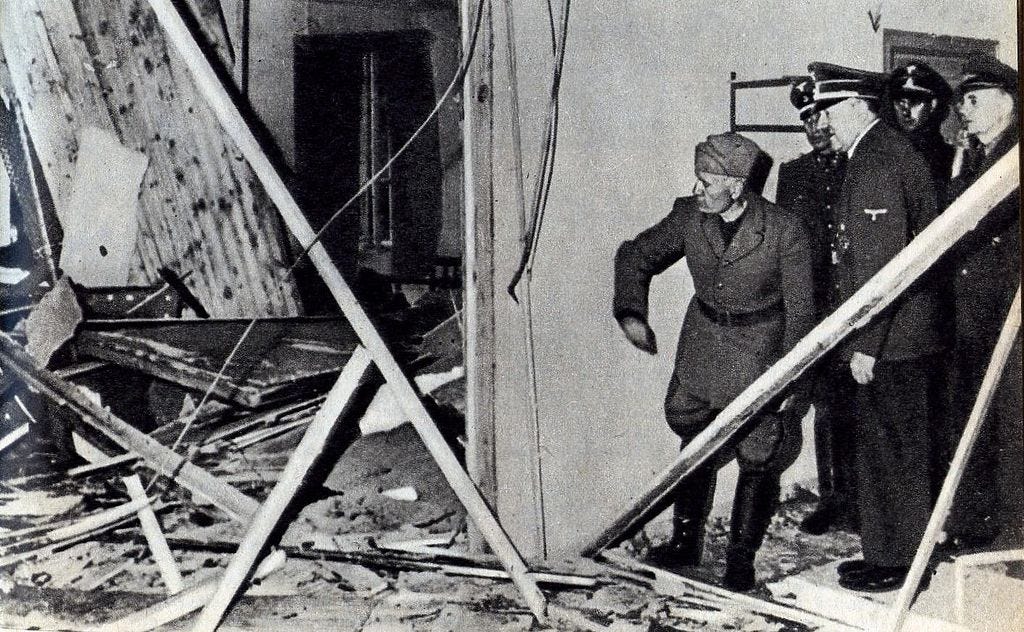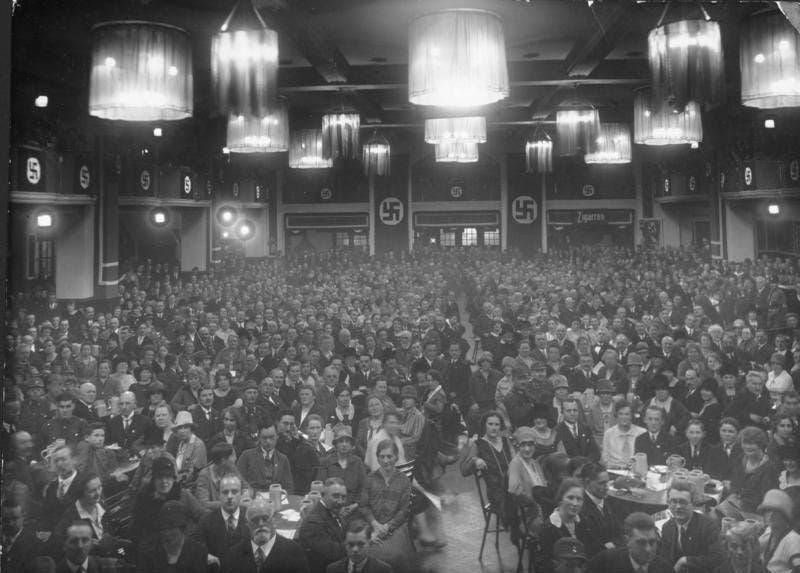🏷️ Categories: History
“Probability said that someday we would run out of luck.”
Gene Kranz, “Failure is Not an Option”
History is full of fortuitous events that have dictated the course of humanity.
One of the most intriguing questions is why Hitler, one of the most infamous dictators, never died in an assassination attempt and other less influential people did. In fact, Hitler may hold the record for the most attempts on his life, with more than 40 attempts, but he always survived for some reason. Had any of the attempts succeeded, perhaps the history of mankind would be different.
Hitler was cunning, he was smart, and it must be said, he had some luck.
Hitler was a cautious person
He was well aware of the danger to his life.
Unlike other rulers, he did not trust even his own security personnel. He distrusted even those closest to him, which is why he led an erratic and somewhat solitary lifestyle.
Schedule changes: Hitler rarely followed a fixed schedule, arriving and leaving places later or earlier than expected, always unpredictable.
Route changes: He avoided traveling on main roads or following a clear route. It was difficult to wait for him in one place and shoot him as they did with President Kennedy.
Only a few people: Only a few were trusted. It was impossible to infiltrate and reach him.
Countless attempts: all unsuccessful
Some 40 times they tried to finish him off, 20 of them are highly documented, 0 of them were successful (Moorhouse, 2006; Zentner et al., 1991).
Here are two occasions that came very close:
Attack of July 20, 1944: Operation Valkyrie
One of the most famous attempts.
A group of military men from the Nazi regime itself betrayed him. The plot was organized by Claus von Stauffenberg. Their plan was to finish him off in order to take control of the government and negotiate an end to the war.
The plan was simple:
Stauffenberg would break into Hitler's headquarters, taking advantage of the fact that he was one of the few people in Hitler's inner circle.
Once inside, he would place a bomb in a suitcase under the conference table. The bomb would detonate at 12:40, in the middle of Hitler's meeting that day.
Wait
Hear the explosion
Enjoy
The miracle happened
Chance touched Hitler in the form of luck.
Shortly before the bomb detonated, the suitcase was moved by one of the attendants, who unknowingly moved the explosive away from Hitler.
When the bomb exploded, the heavy oak table absorbed much of the impact, resulting in only minor injuries to Hitler. Four people were killed, but the dictator survived almost unharmed.
This is how Hitler showed Mussolini what the room looked like after the bombing.
Attack of November 8, 1939: The Brewery Bombing
An (almost) foolproof plan
Georg Esler, a German communist carpenter set out to single-handedly take out Hitler at the Bürgerbräukeller beer hall in Munich, where he used to go to give speeches (Haasis, 2013).
Georg spent weeks preparing a homemade bomb, then posed as brewery staff and managed to infiltrate to hide the bomb inside a column of the podium from where Hitler would give his speech. The bomb was scheduled to detonate at 21:20, when Hitler would be in the middle of his speech.
The explosion was to reverberate throughout Germany.
The miracle happened
Once again, Hitler's unpredictability saved his life.
Hitler cut his speech short and left the beer hall ahead of schedule.
The bomb exploded at 21:20, just when Elser had planned, but Hitler had been gone for 13 minutes. Eight people were killed.
Hitler was unhurt.
It took time to catch Georg, the first thing Hitler thought was that it was all the work of the British and Jews (Bürgerbräukeller Bombing, 1939).
The history of humanity
Snipers, poison, bombs... they tried to kill him with everything and he always came out unscathed.
Hitler's early death could have accelerated the peace negotiation, avoiding atrocities and millions of deaths. It would have changed the history books of the 20th century and the damage caused by the Holocaust.
That is how fragile is the thread on which the fate of humanity sometimes hangs.
Have you been interested in historical curiosity? I'll read you in comments!
See you soon! 👋
📚 References
Bürgerbräukeller bombing (1939). (1939, 9 noviembre). Newspapers.com. https://www.newspapers.com/article/the-rhinelander-daily-news-brgerbrukel/64225490/
Georg Elser: Illustrierter Beobachter. Georg Elser Arbeitskrei. https://www.georg-elser-arbeitskreis.de/texts/attentat.htm
Haasis, H. G. (2013). Bombing Hitler: The Story of the Man Who Almost Assassinated the Führer. Simon and Schuster.
Kranz, G. (2009). Failure Is Not an Option: Mission Control From Mercury to Apollo 13 and Beyond. Simon and Schuster.
Moorhouse, R. (2006). Killing Hitler: The Plots, the Assassins, and the Dictator who Cheated Death. Bantam.
Zentner, C., Bedürftig, F., & Hackett, A. (1991). The Encyclopedia of the Third Reich. Macmillan Reference USA.












Interesting history I had never known about. Thank you for bringing it to my attention.
Interesting read. I knew that there were attempts to assassinate him, but I didn't know these details. Thanks for sharing.